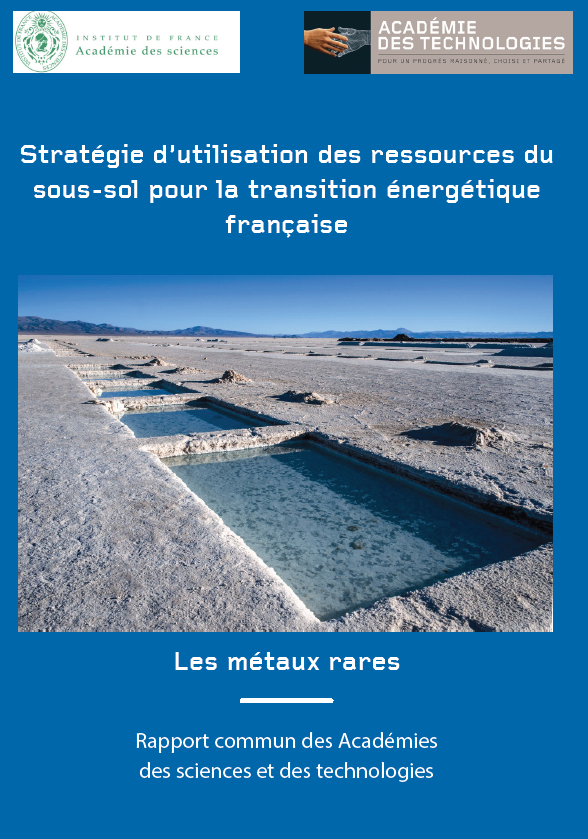The energy transition is an important paradigm shift for many sectors, including the sector for many traditional raw materials (iron, concrete, copper, etc.), but also for materials that have not been used much so far but are nevertheless necessary for technologies, many of which are emerging (rare metals). As a result, tensions are already high and will increase.
The French Academy of Sciences and the National Academy of Technology of France have decided to set up a joint working group to analyse the potential resources of metals and materials needed for the energy transition, available in the French sub-soil and sea bed, and to put them in perspective with global resources. The objective is to advise public authorities on France’s needs and possible choices, and to suggest strategies on a case-by-case basis.
Material requirements are assessed by taking into account, as much as possible, all components of the energy transition: energy production, use (electric cars), storage.
Recommendations are addressed to public authorities. They are grouped into five families: anticipating possible tensions, knowing France’s resources, supporting the energy transition through appropriate technologies, taking industrial advantage of the commitment to the energy transition and, finally, adapting the legislative and regulatory framework.
Like any transition period, this one presents risks, but also opportunities. Suggestions are made to limit risks (especially environmental risks) while promoting opportunities.
The main conclusion of this study is that the energy transition can neither be achieved without major technological adaptations nor without significant changes in the supply chain.
(Report in French)

